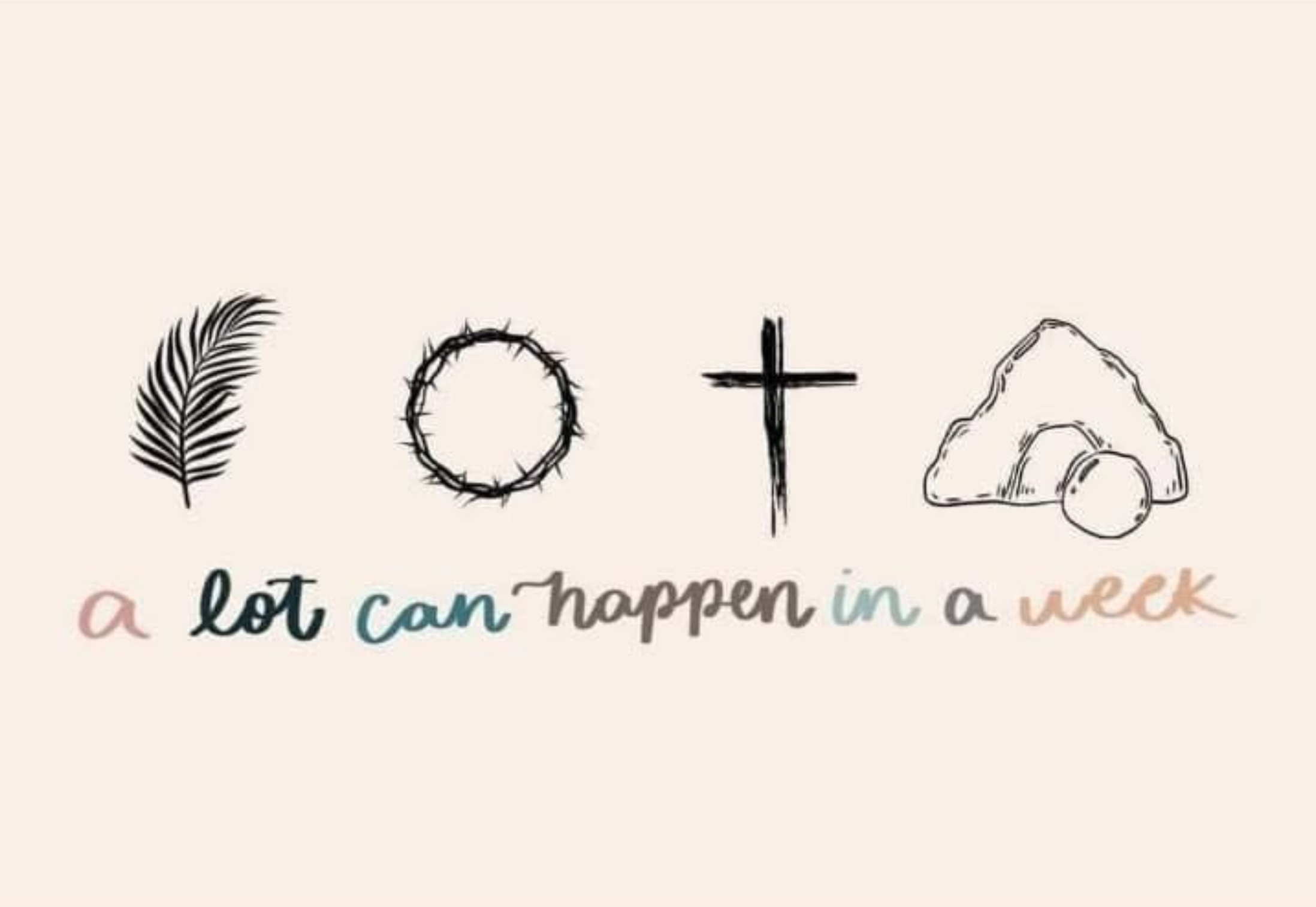Every year the time between Palm Sunday and Easter is regarded as “Holy Week.” This year I would like to encourage all of us to not let this time of reflection about the life, death, and resurrection of our Lord Jesus Christ slip away from us after the close of Easter. Sometimes the dark, chilling hands of complacency grab hold of us, and we begin to compromise our lives even in subtle, small ways. My encouragement this year for all of us is that we get into the word and focus on understanding our relationship with Christ more than ever. To focus on prayer, Fellowship, the teaching of God’s word, and the breaking of bread, as we reflect on a regular basis about the death of Jesus Christ.
Sunday, we spoke of the resurrection of Jesus Christ and how Jesus predicted that his sheep would be scattered upon his death. We visited two of those scattered sheep as we joined Jesus and the two men on the road to Emmaus. These two men had allowed complacency to slip into their lives as they doubted the resurrection of Christ and decided to leave town instead of sticking around as Jesus told them all to. He told them he would meet them in Galilee but instead these two men ran the other direction, in fact all the followers of Jesus shrunk away from him in some way. And just like them, we too can allow that complacency to slip into our lives.
The two men on the road to Emmaus were having what I call a “crisis of faith.” Even as Jesus joined them, although he disguised himself and they were unaware that it was him, they spoke about his body being missing from the tomb. They had not yet come to complete faith in Christ, and they were doubtful of the resurrection. Jesus explained to them throughout the entire Old Testament that the suffering, dead, and subsequent resurrection of the Messiah was spoken of for thousands of years. Oh, how amazing it would have been to hear the words of Jesus on that road to Emmaus. For the scriptures they all held dear to their heart were coming to life and jumping off the pages of history straight into their hearts, as Jesus’s words burned within them, they came to realize the true nature an understanding of who Jesus was and is.
I would imagine that journey of seven miles was a rather short one the second time they traveled it, although this time they traveled in the dead of night as they made their way back to Jerusalem to reunite themselves with the disciples and share their experience. As they gathered together and encouraged each other with stories of Christ appearing to them after his death, after his resurrection. Their faith began to grow to the point of complete surrender. They all picked up their personal crosses, and followed the Lord into areas they never would have found themselves in otherwise.
The fact that Jesus made a special point to seek out Peter is very close and dear to my heart. At some point in my life, and probably in your life as well, we have had moments where we felt we denied Christ and completely betrayed the savior that laid his life down for our sins. Jesus specifically seeking Peter out, and our text in Luke’s gospel telling us that Peter was one that Jesus appeared to after the resurrection, shows his love and care for the lost. The restoration of Peter after such a denial speaks to the true love and care that Jesus has for his sheep.
In the gospel of John we read about one of the disciples that was not present when this gathering happened as the two men returned from the Emmaus Road. His name is Thomas, but our history books seem to call him doubting Thomas. I personally feel that’s not exactly a fair assessment of who Thomas was and I believe that can be seen in Jesus’s reaction to the questions of Thomas. Thomas stated that he wouldn’t believe that Jesus resurrected unless he saw the evidence, that he was able to touch the wounds in his side and see the holes from the nails in his hands and feet. When Jesus does have an encounter with Thomas, he does not condemn him or chastise him for his questions, he gently tells Thomas to touch the wounds and see what the truth is. Jesus told his disciples that the truth would set them free, and seeking the truth about Jesus Christ is never a bad thing. Thomas ultimately turned to the Lord with saving faith and fell to his knees and worshipped. In the original language, He said, ho kurios mu, ho theos mu, the lord of me, the God of me. The Lord had filled his heart with the joy of salvation. The lesson we can learn for ourselves is that questions are OK. The Lord will never turn away the person truly seeking the truth of the Bible; questions are how you get to that truth. Questions asked from the heart for the purpose of understanding Christ are something that can build our faith, not tear it down.
So, as this Holy Week comes to a close, let’s extend this week into a holy year. Let’s continue to seek the Lord and the truth of his resurrection every single day of our lives. The disciples sought the truth of Jesus, believed the truth of Jesus, and spent the rest of their lives seeking him and telling others about the death, resurrection, and hope that is only found in Jesus Christ. Through mutual encouragement, they became true disciples of Jesus Christ that day and that would be my encouragement for all of us as we continue through this year.

